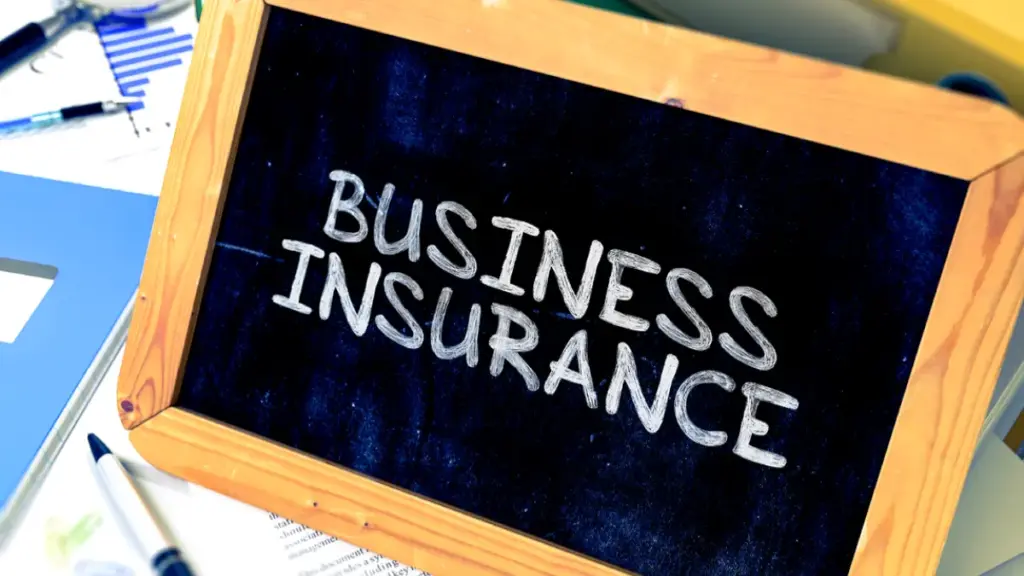Running a business involves exciting opportunities, but it also comes with risks. From property damage to lawsuits, unforeseen events can create significant financial burdens for companies. This is where business insurance steps in — offering protection, peace of mind, and financial security.
In this guide, we’ll break down the essentials of business insurance, the types of coverage available, how it works, and why it’s a must-have for any business owner.
Understanding Business Insurance

Business insurance is a contract between a company and an insurer that provides financial protection against losses from unexpected events. These can include natural disasters, accidents, theft, employee injuries, or legal claims.
The purpose is simple: help businesses recover financially and operationally when something goes wrong.
Why Business Insurance Matters
- Protects Assets – Ensures that your property, equipment, and other assets are covered.
- Covers Liability – Handles costs if your business is sued.
- Supports Business Continuity – Keeps operations running after an incident.
- Builds Credibility – Clients and partners trust insured businesses more.
Types of Business Insurance
There’s no one-size-fits-all policy. Businesses often need a combination of coverages tailored to their specific risks.
1. General Liability Insurance
This covers claims of bodily injury, property damage, and personal injury caused by your business.
Example: If a customer slips in your store and gets injured, this insurance covers their medical bills and your legal defense.
2. Property Insurance
Protects buildings, equipment, inventory, and other physical assets from risks like fire, theft, or vandalism.
3. Business Interruption Insurance
Covers lost income if your business can’t operate due to a covered event such as a fire or natural disaster.
4. Professional Liability Insurance (Errors & Omissions)
Protects against negligence claims or mistakes in professional services. Common in law, accounting, consulting, and healthcare.
5. Workers’ Compensation Insurance
Provides medical benefits and wage replacement for employees injured on the job.
6. Commercial Auto Insurance
Covers company vehicles and liability in case of accidents.
7. Cyber Liability Insurance

With the rise of cyberattacks, this protects against data breaches, hacking, and other online threats.
8. Product Liability Insurance
Covers damages caused by defective products sold or manufactured by your business.
How Business Insurance Works
Business insurance works by transferring the risk of potential losses from the business to the insurance company in exchange for premium payments.
The Process:
- Assessment of Needs – Identify risks and determine suitable coverage types.
- Choosing Policies – Select plans and coverage amounts based on risk exposure.
- Paying Premiums – Monthly, quarterly, or annual payments to the insurer.
- Filing Claims – When an incident occurs, notify your insurer and submit proof.
- Claim Settlement – The insurer pays for covered losses based on policy terms.
Factors Affecting Business Insurance Costs
Insurance costs vary based on several factors:
- Industry Type – High-risk industries like construction pay more than low-risk offices.
- Location – Areas prone to theft or natural disasters may have higher premiums.
- Business Size – Larger businesses with more assets typically pay more.
- Claims History – Frequent past claims can increase rates.
- Coverage Amount – Higher limits mean higher premiums.
Tips for Choosing the Right Business Insurance
1. Evaluate Your Risks
List all potential risks your business could face — from property damage to employee lawsuits.
2. Work With a Licensed Broker
An experienced broker can tailor policies to your needs and help compare rates.
3. Read the Fine Print
Understand coverage limits, exclusions, and deductibles before signing.
4. Combine Policies for Savings
Many insurers offer Business Owner’s Policies (BOP), which bundle multiple coverages at a reduced rate.
5. Review Annually
Update coverage as your business grows or your risks change.
Common Myths About Business Insurance
Myth 1: Small Businesses Don’t Need Insurance
Reality: Even small businesses can face costly lawsuits or disasters.
Myth 2: Homeowners Insurance Covers Home-Based Businesses
Reality: Most homeowners’ policies exclude business activities.
Myth 3: All Risks Are Covered
Reality: Certain events like floods or earthquakes often require separate policies.
The Legal Side of Business Insurance
Some insurance types are legally required depending on your state or industry.
Mandatory Coverages Often Include:
- Workers’ Compensation Insurance – Required in most states for businesses with employees.
- Commercial Auto Insurance – If you use vehicles for work.
- Professional Liability Insurance – Mandatory in some professions (e.g., healthcare, law).
Failure to have required coverage can lead to fines, penalties, or shutdowns.
The Benefits of Business Insurance
- Financial Protection – Avoid crippling expenses after unexpected events.
- Risk Management – Peace of mind knowing you’re prepared for emergencies.
- Legal Compliance – Meet state and industry insurance requirements.
- Business Reputation – Clients trust insured companies more.
Real-Life Example: Business Insurance in Action
Imagine a small bakery that experiences a kitchen fire. Without insurance, the owner would need to pay for repairs, replace damaged equipment, and cover lost income during closure. With property and business interruption insurance, most of these costs are covered — allowing the bakery to reopen quickly without financial ruin.
Future Trends in Business Insurance
- AI and Data-Driven Risk Assessment – More accurate premium pricing.
- Cybersecurity Coverage Expansion – As cyber threats increase.
- Climate Risk Policies – To address weather-related damages.
- Flexible Micro-Insurance – Short-term coverage for temporary needs.
Also Read : The Ultimate Guide to Choosing the Best Health Insurance Plan
Conclusion
Business insurance isn’t just a safety net — it’s a crucial part of a company’s survival strategy. By understanding your risks, choosing the right coverage, and keeping your policy up to date, you can safeguard your operations against costly setbacks. Whether you’re a small startup or an established corporation, having the right insurance means you can focus on growth without fearing the unexpected.
FAQs About Business Insurance
1. Do I need business insurance if I work from home?
Yes. Homeowners’ insurance usually doesn’t cover business activities, so you’ll need separate coverage.
2. How much does business insurance cost?
Costs vary based on business size, industry, location, and coverage type — typically ranging from a few hundred to several thousand dollars annually.
3. Can I get all my coverage in one policy?
Yes, many insurers offer Business Owner’s Policies (BOP) that bundle general liability and property insurance.
4. What’s the most important type of business insurance?
It depends on your operations, but general liability and property insurance are common essentials.
5. Can I change my policy if my business grows?
Absolutely. You should review and update your coverage annually or whenever your business changes significantly.


